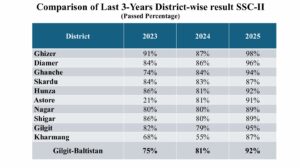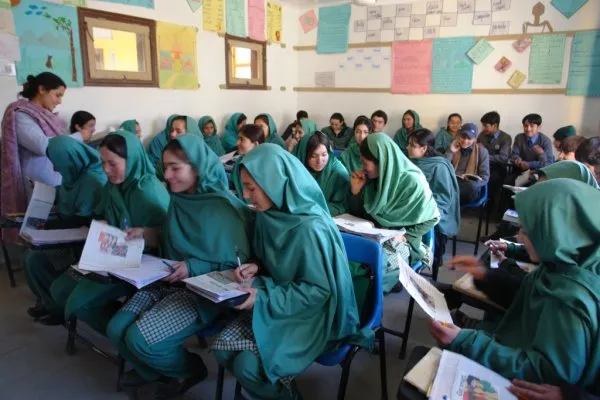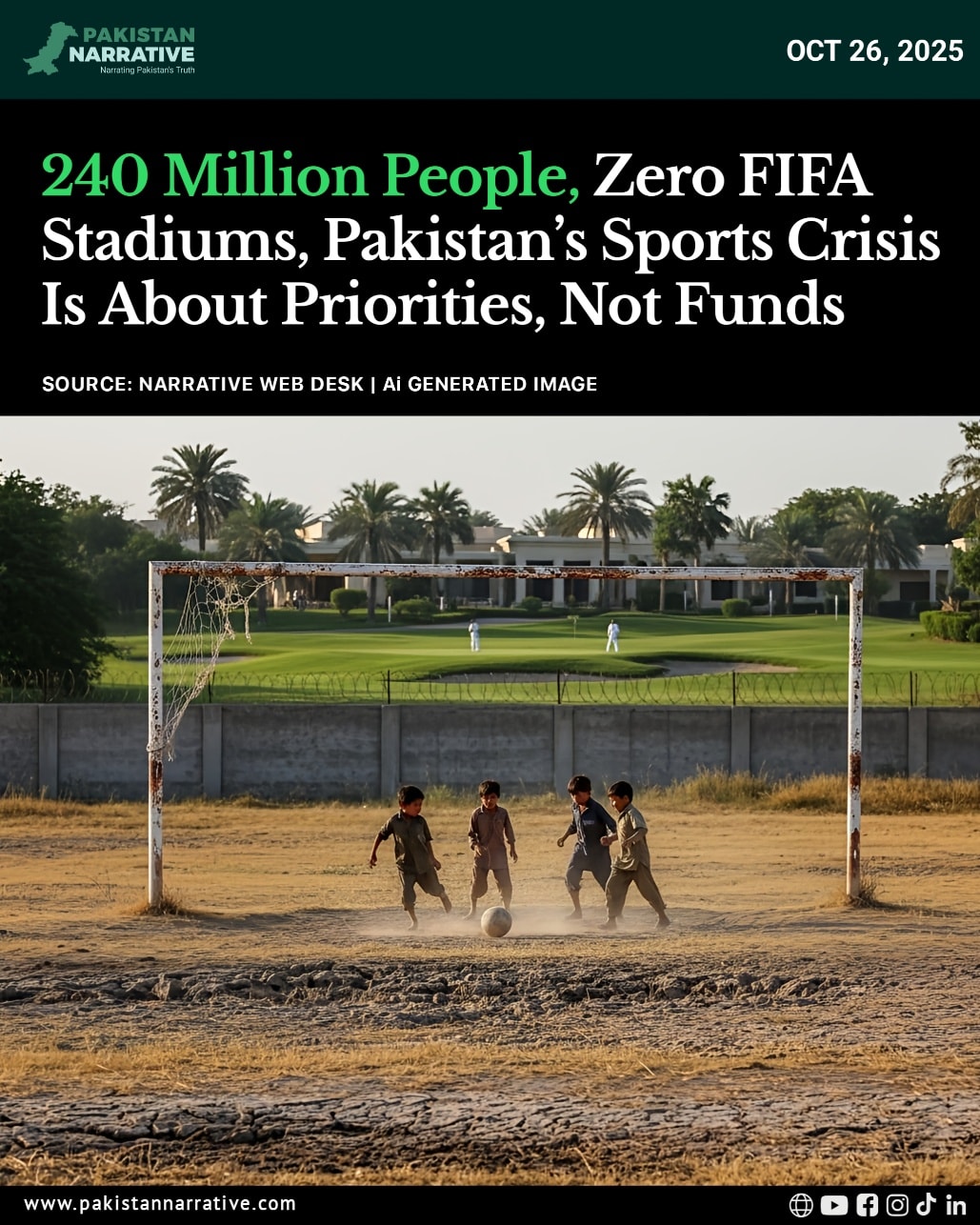The Secondary School Certificate Part-II (SSC-II) examination results for 2025 have shown a marked improvement across Gilgit-Baltistan (GB), with the overall pass rate rising to 92 per cent, up from 75 per cent in 2023, according to official figures released on Friday.
Education officials have attributed the surge in performance to sustained investment in the education sector, resulting in improved infrastructure, enhanced teaching standards, and greater focus on academic performance at the district level.
Among the most striking improvements was seen in Astore district, where the pass percentage rose from a mere 21 per cent in 2023 to 91 per cent in 2025 — a dramatic turnaround that has been widely lauded by local educationists.

In Kharmang, which saw a dip in performance last year, the pass rate rebounded to 87 per cent in 2025, reflecting recovery efforts and renewed attention to academic support programmes.
The highest success rate this year was recorded in Ghizer district, where 98 per cent of students passed the SSC-II exams, positioning the district at the top of the regional rankings.
Read More: Nagar Protesters Block KKH Over Sarfraz Nagri Arrest
“This progress reflects the impact of consistent policy focus, community engagement, and targeted investment in schools,” an official at the GB Education Directorate told that . “It’s a collective achievement of students, teachers, and education administrators.”
The improvement comes as a rare piece of positive news from the region, which has long struggled with issues such as teacher shortages, inadequate facilities, and uneven access to quality education — particularly in remote mountainous areas.
Observers say the data suggests a growing awareness among parents and communities about the value of education, as well as increasing accountability measures within the public school system.
However, education experts cautioned that while the numbers are encouraging, sustained efforts are required to ensure long-term improvements in learning outcomes.
“There’s still a gap between passing exams and acquiring real, applicable knowledge,” noted one education consultant based in Skardu. “We need to maintain momentum and ensure that improvements go beyond exam scores.”
Officials said further reforms are under consideration to address challenges such as dropout rates, curriculum gaps, and digital learning access — particularly in the context of climate-related disruptions that frequently affect remote areas.





